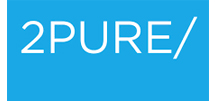2Pure UK Ltd.
Home / 2Pure UK Ltd.
NetSuite Helps Outdoor Products Distributor Grow 95% Without Adding New Staff

COMPANY
2Pure UK Ltd.
LOCATION
Edinburgh, United Kingdom
INDUSTRY
Wholesale/Distribution, Outdoor Products
APPLICATIONS REPLACED
Sage
SOLUTIONS
NetSuite
NetSuite Site Builder
“NetSuite saves us time and allows us to focus on running the business, and that has helped us increase our turnover—our revenues—by 95%.”
- 2Pure
CUSTOMER SUCCESS
- NetSuite has helped support a 95% increase in revenues without adding staff.
- Integrated business processes, new website save 25% of sales staff’s time.
- Warehouse distribution efficiencies have cut need for warehouse space by 40%.
- Browser-based access lets Mac users access NetSuite as easily as PC users.
CHALLENGES
- Chose NetSuite for ERP, CRM, ecommerce after working with disparate systems in previous companies.
- Managing multiple websites that highlight its separate product brands.
- Role-based dashboards manage everything from CRM and Ecommerce to stock control and accounting.
SOLUTION
- In preparation to pursue growth, Philz opted for NetSuite’s single, integrated cloud business management solution for superior scalability and flexibility.
- Selected over SAP, NetSuite’s cloud architecture enables the company to avoid high IT capital costs and ongoing maintenance typical with the alternative of on-premise software and servers.
- Enterprise-caliber cloud solution means that Philz will not need to endure a costly and disruptive upgrade several years down the road.




























